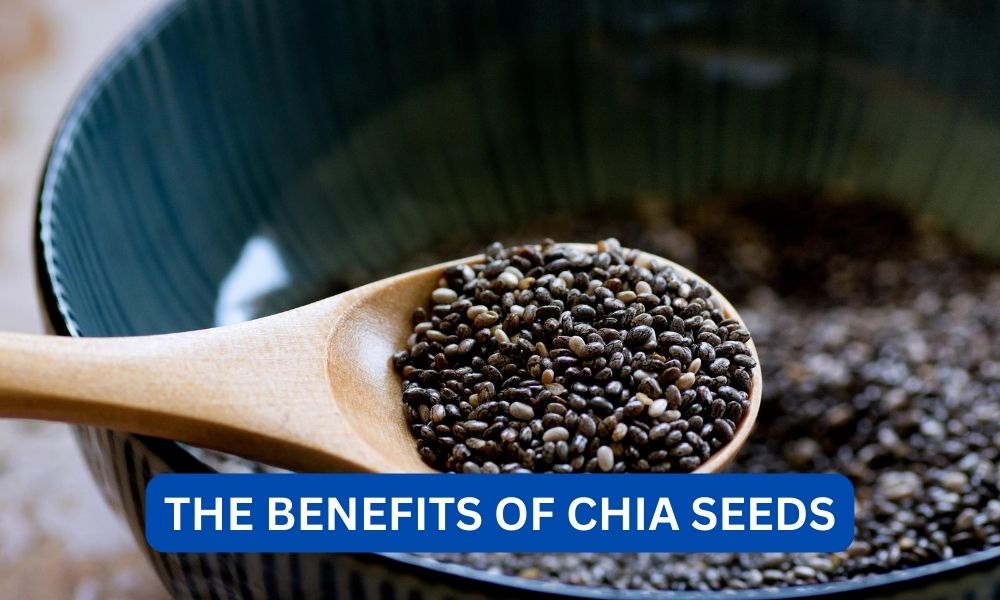Chia seeds have been gaining popularity in recent years as a superfood, touted for their numerous health benefits. These tiny seeds, which come from the Salvia hispanica plant, have been used for centuries by the Aztecs and Mayans for their medicinal properties. Today, chia seeds are widely available and have become a staple in many health-conscious diets. In this article, we will delve into the benefits of chia seeds and explore why they are considered a superfood.
Contents
What are Chia Seeds?
Chia seeds are small, oval-shaped seeds that come from the Salvia hispanica plant, which is native to Mexico and Guatemala. They are a member of the mint family and have been used as a food source for centuries. Chia seeds are rich in nutrients and are considered a superfood due to their high nutritional value.
Chia seeds are a good source of protein, fiber, and healthy fats. They also contain essential vitamins and minerals such as calcium, magnesium, and phosphorus. These seeds are also gluten-free, making them a great option for those with celiac disease or gluten intolerance.
The Benefits of Chia Seeds
Chia seeds have gained popularity due to their numerous health benefits. Let’s take a closer look at some of the key benefits of incorporating chia seeds into your diet.
Read:What are the benefits of eating pomegranate seeds1. High in Nutrients
Chia seeds are packed with essential nutrients that are important for overall health and well-being. They are a good source of protein, containing all nine essential amino acids that our bodies need. This makes them an excellent option for vegetarians and vegans who may struggle to get enough protein in their diets.
Chia seeds are also rich in fiber, with one ounce (28 grams) containing 11 grams of fiber. This is almost half of the recommended daily intake of fiber for adults. Fiber is essential for digestive health and can help regulate bowel movements, lower cholesterol levels, and control blood sugar levels.
Additionally, chia seeds are a good source of healthy fats, particularly omega-3 fatty acids. These fats are important for brain health, reducing inflammation, and improving heart health.
2. Helps with Weight Loss
Chia seeds are often recommended for those looking to lose weight. This is because they are high in fiber and protein, which can help keep you feeling full and satisfied for longer periods. This can prevent overeating and snacking on unhealthy foods, leading to weight loss.
One study found that participants who consumed chia seeds for breakfast reported feeling less hungry and had lower levels of ghrelin, the hormone responsible for stimulating appetite, compared to those who had a breakfast without chia seeds. This suggests that chia seeds may help reduce appetite and aid in weight loss.
Read:What are the benefits of drinking ensure?3. May Improve Heart Health
Chia seeds are rich in omega-3 fatty acids, which have been linked to improved heart health. These healthy fats can help reduce inflammation, lower blood pressure, and decrease the risk of heart disease and stroke.
One study found that consuming chia seeds daily for 12 weeks resulted in a significant decrease in blood pressure in participants with hypertension. Another study showed that chia seeds can help reduce LDL (bad) cholesterol levels and increase HDL (good) cholesterol levels, which can improve heart health.
4. Good for Bone Health
Chia seeds are an excellent source of calcium, magnesium, and phosphorus, all of which are essential for maintaining strong and healthy bones. These minerals work together to build and maintain bone density, reducing the risk of osteoporosis and fractures.
In fact, one study found that consuming chia seeds daily for six months resulted in improved bone health in postmenopausal women. This is particularly important for women, as they are at a higher risk of developing osteoporosis as they age.
5. May Help Control Blood Sugar Levels
Chia seeds have a low glycemic index, meaning they are digested and absorbed slowly, resulting in a gradual rise in blood sugar levels. This makes them a great option for those with diabetes or those looking to control their blood sugar levels.
Read:The Miraculous Benefits of Black Seed Oil for Your HealthOne study found that consuming chia seeds with a high-carbohydrate meal resulted in a lower rise in blood sugar levels compared to consuming the same meal without chia seeds. This suggests that chia seeds may help regulate blood sugar levels and prevent spikes and crashes.
How to Incorporate Chia Seeds into Your Diet
Chia seeds have a mild, nutty flavor and can be easily incorporated into your diet. Here are some ideas on how to add chia seeds to your meals:
- Add them to your morning smoothie or yogurt for a boost of nutrients.
- Sprinkle them on top of salads or soups for added crunch.
- Use them as an egg substitute in baking by mixing 1 tablespoon of chia seeds with 3 tablespoons of water and letting it sit for 15 minutes.
- Make chia seed pudding by mixing chia seeds with your choice of milk and letting it sit in the fridge overnight.
- Use them as a topping for oatmeal or overnight oats.
Are There Any Risks or Side Effects?
Chia seeds are generally safe for consumption, but there are a few things to keep in mind:
- Chia seeds are high in fiber, so it’s important to drink plenty of water when consuming them to prevent constipation.
- Some people may be allergic to chia seeds, so it’s important to start with a small amount and monitor for any adverse reactions.
- Chia seeds may interact with certain medications, so it’s best to consult with your doctor before adding them to your diet.
Conclusion:
Chia seeds are a nutrient-dense superfood that offers numerous health benefits. They are a good source of protein, fiber, and healthy fats, making them a great addition to any diet. From aiding in weight loss to improving heart and bone health, chia seeds have a lot to offer. So why not give them a try and reap the benefits of this tiny but mighty superfood?








